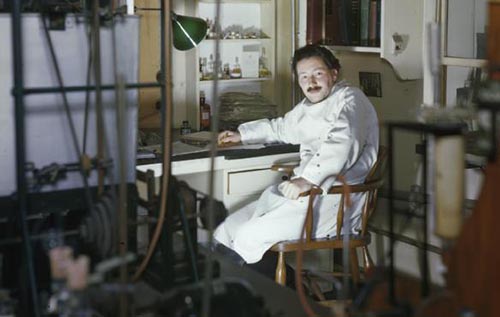The forgotten man in the discovery of penicillin: Who is Ernst Boris Chain?
Penicillin was a major discovery, a precursor to antibiotics, and a life-saving medicine. Most people know Alexander Fleming for this discovery, but the name of Ernst Boris Chain, another important figure who helped Fleming in this success and put penicillin into use, is often forgotten.

Chain and his colleague Howard Florey played a major role in transforming Fleming's discovery from the laboratory to clinical applications, making penicillin a life-saving drug. Therefore, the contributions of great scientists such as Chain and Florey in the discovery and development of penicillin should not be ignored.
From Mold to Medicine
In 1929, Alexander Fleming discovered that the fungus Penicillium rubens secretes penicillin, which effectively stops the growth of bacteria. However, this discovery did not receive sufficient attention at the time due to the difficulty of producing penicillin stably or obtaining a pure compound. However, in 1939, Ernst Boris Chain and his colleague Howard Florey began working on antibacterial agents and took steps in this field, inspired by Fleming's work.
Sir Ernst Boris Chain (19 June 1906 – 12 August 1979) was a German-born British biochemist best known for being a co-recipient of the Nobel Prize in Physiology or Medicine for his work on penicillin.
Chain and Florey took over the work started by Fleming and accelerated penicillin research. As a result of this research, pure penicillin was obtained in 1940, and studies continued to increase the production and purify this effective antibiotic. Chain and Florey also made important predictions about the chemical structure of penicillin and how it works.
Great timing
In 1941, penicillin was subjected to clinical trials in the first patient. This turning point was the beginning of antibiotics making a revolutionary contribution to the medical world. Chain and Florey showed their interest in the production of penicillin at a time when World War II was just breaking out. This meant that in an environment where war was rapidly spreading, there was an urgent need to effectively treat bacterial infections.
In 1943, Britain established a special penicillin committee, which accelerated the work of Chain and Florey. Particularly in the United States, large-scale steps have been taken towards the mass production of penicillin. This was a major turning point in the treatment of infectious diseases during World War II. Hundreds of thousands of people were able to receive treatment with penicillin in the middle of the war.
For this important work, Chain was awarded the Nobel Prize in Physiology or Medicine in 1945, together with Fleming and Florey.
